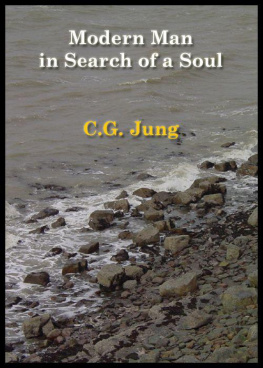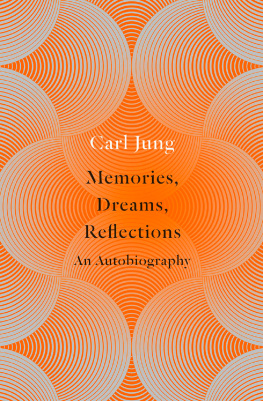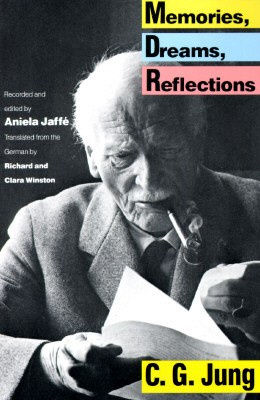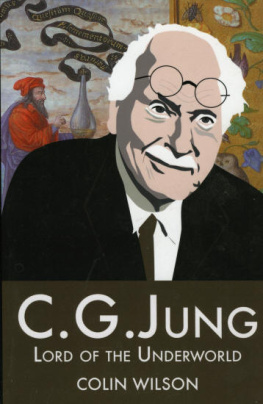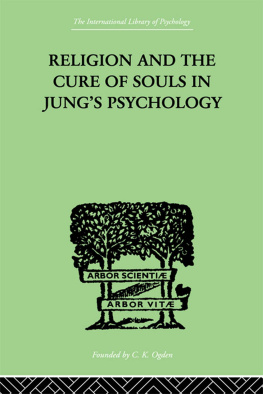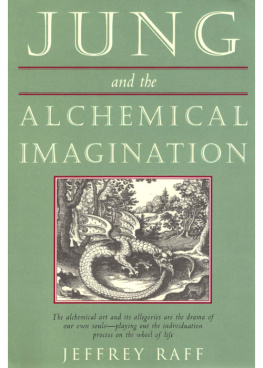Carl Gustav Jung - Man and His Symbols
Here you can read online Carl Gustav Jung - Man and His Symbols full text of the book (entire story) in english for free. Download pdf and epub, get meaning, cover and reviews about this ebook. year: 1968, publisher: Dell, genre: Religion. Description of the work, (preface) as well as reviews are available. Best literature library LitArk.com created for fans of good reading and offers a wide selection of genres:
Romance novel
Science fiction
Adventure
Detective
Science
History
Home and family
Prose
Art
Politics
Computer
Non-fiction
Religion
Business
Children
Humor
Choose a favorite category and find really read worthwhile books. Enjoy immersion in the world of imagination, feel the emotions of the characters or learn something new for yourself, make an fascinating discovery.

- Book:Man and His Symbols
- Author:
- Publisher:Dell
- Genre:
- Year:1968
- Rating:5 / 5
- Favourites:Add to favourites
- Your mark:
- 100
- 1
- 2
- 3
- 4
- 5
Man and His Symbols: summary, description and annotation
We offer to read an annotation, description, summary or preface (depends on what the author of the book "Man and His Symbols" wrote himself). If you haven't found the necessary information about the book — write in the comments, we will try to find it.
Man and His Symbols — read online for free the complete book (whole text) full work
Below is the text of the book, divided by pages. System saving the place of the last page read, allows you to conveniently read the book "Man and His Symbols" online for free, without having to search again every time where you left off. Put a bookmark, and you can go to the page where you finished reading at any time.
Font size:
Interval:
Bookmark:
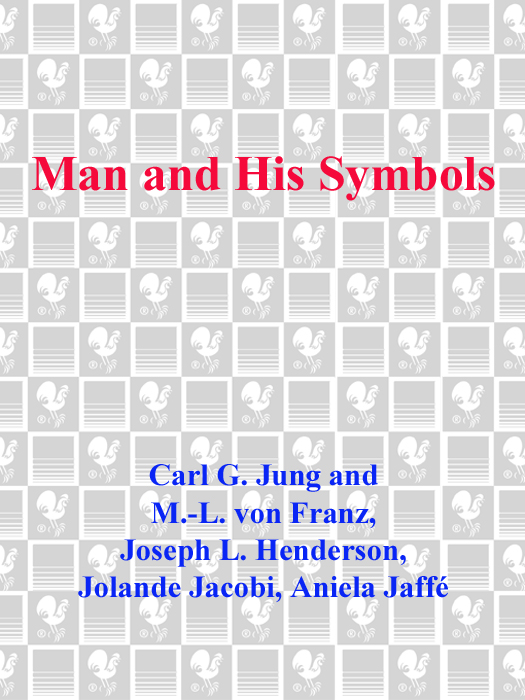
Man and His Symbols owes its existence to one of Jungs own dreams. The great psychologist dreamed that his work was understood by a wide public, rather than just by psychiatrists, and therefore he agreed to write and edit this fascinating book. Here, Jung examines the full world of the unconscious, whose language he believed to be the symbols constantly revealed in dreams. Convinced that dreams offer practical advice, sent from the unconscious to the conscious self, Jung felt that self-understanding would lead to a full and productive life. Thus, the reader will gain new insights into himself from this thoughtful volume, which also illustrates symbols throughout history. Completed just before his death by Jung and his associates, it is clearly addressed to the general reader.
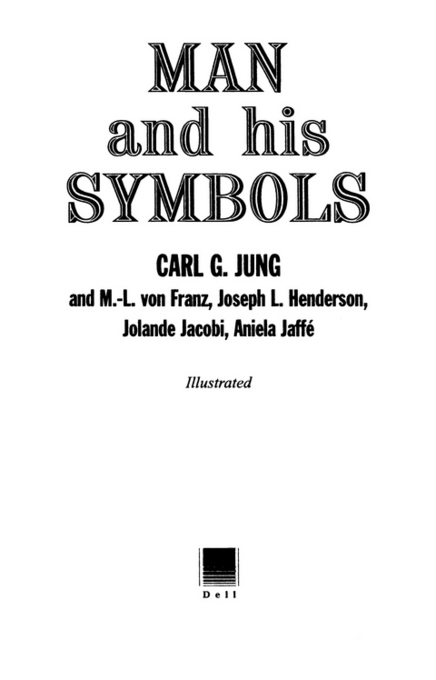
Published by
Dell Publishing
a division of
Random House, Inc.
Editor, Carl G. Jung
and after his death M.-L. von Franz
Coordinating Editor: John Freeman
Copyright 1964 by Aldus Books, Limited, London, except , entitled Ancient Myths and Modern Man, by Dr. Joseph L. Henderson, where copyright in this chapter within the United States of America is expressly disclaimed.
All rights reserved. No part of this book may be reproduced or transmitted in any form or by any means, electronic or mechanical, including photocopying, recording, or by any information storage and retrieval system, without the written permission of the Publisher, except where permitted by law.
The trademark Dell is registered in the U.S. Patent and Trademark Office.
eISBN: 978-0-307-80055-8
v3.1

John Freeman
The origins of this book are sufficiently unusual to be of interest, and they bear a direct relation to its contents and what it sets out to do. So let me tell you just how it came to be written.
One day in the spring of 1959 the British Broadcasting Corporation invited me to interview for British television Dr. Carl Gustav Jung. The interview was to be done in depth. I knew little enough at that time about Jung and his work, and I at once went to make his acquaintance at his beautiful lakeside home in Zurich. That was the beginning of a friendship that meant a great deal to me and, I hope gave some pleasure to Jung in the last years of his life. The television interview has no further place in this story, except that it was accounted successful and that this book is by an odd combination of circumstances an end-product of that success.
One man who saw Jung on the screen was Wolfgang Foges, managing director of Aldus Books. Foges had been keenly interested in the development of modern psychology since his childhood, when he lived near the Freuds in Vienna. And as he watched Jung talking about his life and work and ideas, Foges suddenly reflected what a pity it was that, while the general outline of Freuds work was well known to educated readers all over the Western world, Jung had never managed to break through to the general public and was always considered too difficult for popular reading.
Foges, in fact, is the creator of Man and his Symbols. Having sensed from the TV screen that a warm personal relation existed between Jung and myself, he asked me whether I would join him in trying to persuade Jung to set out some of his more important and basic ideas in language and at a length that would be intelligible and interesting to non-specialist adult readers. I jumped at the idea and set off once more to Zurich, determined that I could convince Jung of the value and importance of such a work. Jung listened to me in his garden for two hours almost without interruptionand then said no. He said it in the nicest possible way, but with great firmness; he had never in the past tried to popularize his work, and he wasnt sure that he could successfully do so now; anyway, he was old and rather tired and not keen to take on such a long commitment about which he had so many doubts.
Jungs friends will all agree with me that he was a man of most positive decision. He would weigh up a problem with care and without hurry; but when he did give his answer, it was usually final. I returned to London greatly disappointed, but convinced that Jungs refusal was the end of the matter. So it might have been, but for two intervening factors that I had not foreseen.
One was the pertinacity of Foges, who insisted on making one more approach to Jung before accepting defeat. The other was an event that, as I look back on it, still astonishes me.
The television program was, as I have said, accounted successful. It brought Jung a great many letters from all sorts of people, many of them ordinary folk with no medical or psychological training, who had been captivated by the commanding presence, the humor, and the modest charm of this very great man, and who had glimpsed in his view of life and human personality something that could be helpful to them. And Jung was very pleased, not simply at getting letters (his mail was enormous at all times) but at getting them from people who would normally have no contact with him.
It was at this moment that he dreamed a dream of the greatest importance to him. (And as you read this book, you will understand just how important that can be.) He dreamed that, instead of sitting in his study and talking to the great doctors and psychiatrists who used to call on him from all over the world, he was standing in a public place and addressing a multitude of people who were listening to him with rapt attention and understanding what he said.
When, a week or two later, Foges renewed his request that Jung should undertake a new book designed, not for the clinic or the philosophers study, but for the people in the market place, Jung allowed himself to be persuaded. He laid down two conditions. First, that the book should not be a single-handed book, but the collective effort of himself and a group of his closest followers, through whom he had attempted to perpetuate his methods and his teaching. Secondly, that I should be entrusted with the task of co-ordinating the work and resolving any problems that might arise between the authors and the publishers.
Lest it should seem that this introduction transgresses the bounds of reasonable modesty, let me say at once that I was gratified by this second conditionbut within measure. For it very soon came to my knowledge that Jungs reason for selecting me was essentially that he regarded me as being of reasonable, but not exceptional, intelligence and without the slightest serious knowledge of psychology. Thus I was to Jung the average reader of this book; what I could understand would be intelligible to all who would be interested; what I boggled at might possibly be too difficult or obscure for some. Not unduly flattered by this estimate of my role, I have none the less scrupulously insisted (sometimes, I fear, to the exasperation of the authors) on having every paragraph written and, if necessary, rewritten to a degree of clarity and directness that enables me to say with confidence that this book in its entirety is designed for and addressed to the general reader, and that the complex subjects it deals with are treated with a rare and encouraging simplicity.
After much discussion, the comprehensive subject of the book was agreed to be Man and his Symbols; and Jung himself selected as his collaborators in the work Dr. Marie-Louise von Franz of Zurch, perhaps his closest professional confidante and friend; Dr. Joseph L. Henderson of San Francisco, one of the most prominent and trusted of American Jungians; Mrs. Aniela Jaff of Zurich, who, in addition to being an experienced analyst, was Jungs confidential private secretary and his biographer; and Dr. Jolande Jacobi, who after Jung himself is the most experienced author among Jungs Zurich circle. These four people were chosen partly because of their skill and experience in the particular subjects allocated to them and partly because all of them were completely trusted by Jung to work unselfishly to his instructions as members of a team. Jungs personal responsibility was to plan the structure of the whole book, to supervise and direct the work of his collaborators, and himself to write the keynote chapter, Approaching the Unconscious.
Font size:
Interval:
Bookmark:
Similar books «Man and His Symbols»
Look at similar books to Man and His Symbols. We have selected literature similar in name and meaning in the hope of providing readers with more options to find new, interesting, not yet read works.
Discussion, reviews of the book Man and His Symbols and just readers' own opinions. Leave your comments, write what you think about the work, its meaning or the main characters. Specify what exactly you liked and what you didn't like, and why you think so.

